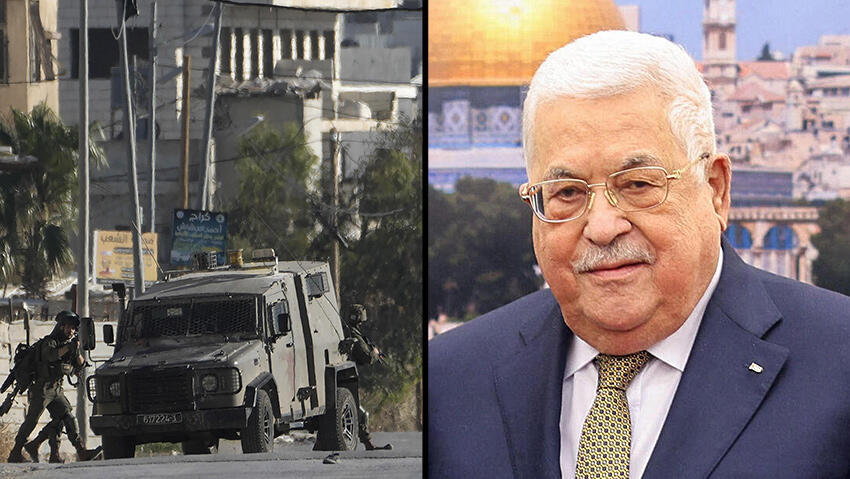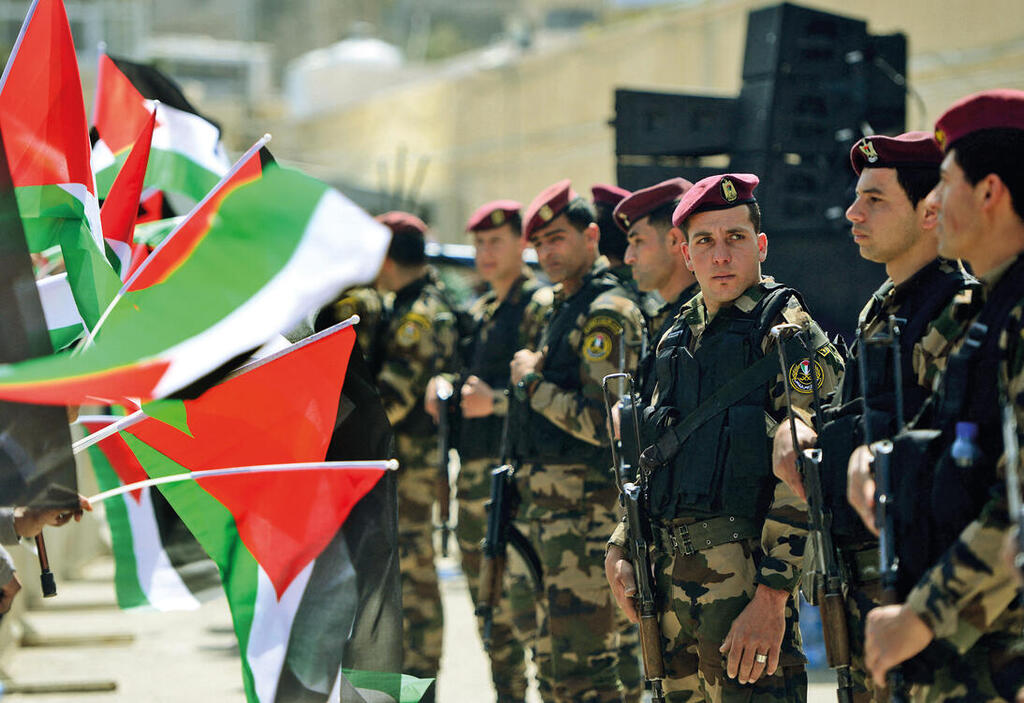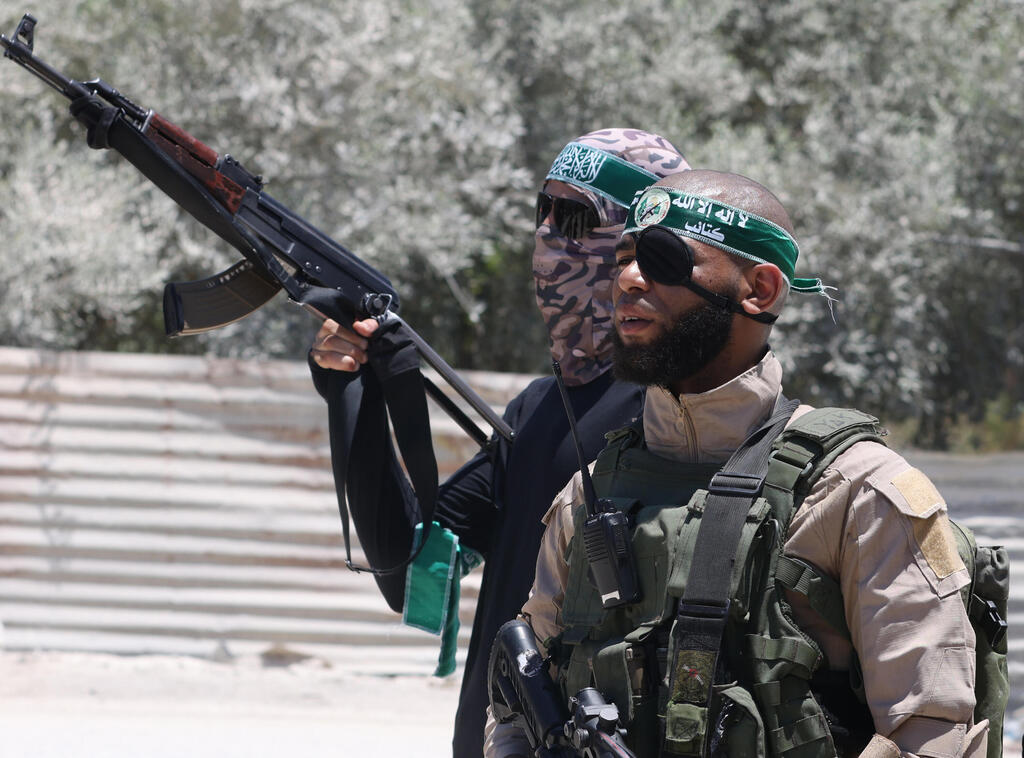Last month, Israel's Cabinet took decisive action by imposing sanctions on the Palestinian Authority, with Finance Minister Bezalel Smotrich leading the charge. After weeks of warnings from the Shin Bet and defense establishment about the potential economic collapse of the Palestinian Authority, Smotrich agreed to release clearance funds that Israel collects on its behalf, except for those intended for Gaza, which he froze in May following European countries' recognition of a Palestinian state.
However, despite this compromise, the funds have not yet been transferred, and even when they are, they are not expected to fully resolve the Authority's severe economic crisis. This crisis has led to reduced salaries for its employees, including security personnel who have been crucial in curbing Hamas' influence and presence in the territories, for the past three years. On Thursday, Palestinian Authority employees will receive their salaries for May, with only about half receiving their full pay, which for many does not exceed $820. The rest will receive between 50% and 60% of their salary, with this ratio varying monthly based on the PA's available funds.
The clearance funds, which Israel collects on behalf of the Authority from taxes on workers and movement of goods, constitute 65% of its annual budget, amounting to $218 million, with around $33 million intended for Gaza. Most of these funds are used by the PA President Mahmoud Abbas, to pay salaries, especially for the 32,000 security personnel.
These security personnel are also affected by the economic crisis. Last month, the Shin Bet warned that salary cuts could drive them to join terrorist organizations, especially given the influx of Iranian money into the region, and lead to a decrease in their effectiveness in countering Hamas in the West Bank.
"In the past," one officer told Ynet, "when we went out on the street, people respected us. We had an aura and respect. Today, we are like the last citizens. We walk because we can't afford taxis, and no one pays attention to us. Everyone knows our salary situation is dire." He added that, due to the economic situation, his wife and young child had to open a fast-food stand as a side income.
3 View gallery


Security forces operating in Nablus; PA President Mahmoud Abbas
(Photo: Majdi Mohammed/AP, AFP)
Another officer from Ramallah said he stopped going to work because he no longer has money for public transportation. "I hold an important and significant role, but I no longer have money to live. It's not logical that I work all month and end up with 40% of a $1,640 salary. It's not enough for anything. It's disgraceful. We are paying a heavy price," he explained. While a full officer's salary in the security mechanisms can reach about $1,640, this amount varies by rank, and simple "policemen" receive much less.
Adnan al-Damiri, who served as the spokesperson for the security mechanisms for many years and has two sons in the service, said the crisis also affected his pension funds. "The clearance funds are Palestinian money," he declared. On the claim that the funds are transferred to the families of terrorists, he said: "Their family members are not terrorists. How are these families supposed to live? Who will pay them to live minimally? You have social security; we live on salaries paid by the Authority."
Al-Damiri added that the crisis also affects the needy who receive welfare assistance and that they too do not receive financial support from the PA. "How they live, I don't know," he said. However, he emphasized that, despite the reduced salaries, security personnel continue their work as usual.
"The preventive security mechanisms protect the lives of everyone, whether they are Jewish or Palestinian. Anyone who enters Palestinian territories – we protect them as if they were Palestinians. We will not agree for them to be attacked or be in any danger. Therefore, any Jew or Israeli who enters the territories, the mechanisms return them to their area securely and protect them," he said.
Indeed, security personnel have helped in the past to return Israelis who found themselves in distress in Palestinian areas, but even al-Damiri acknowledges that the economic crisis could impair their performance. "The fact that many officers no longer have small change to travel home certainly affects them and their performance. It's not easy when there's not enough food at home, and you're in an important role protecting security."
Regarding the fear that security personnel might turn their weapons against Israelis, he says firmly: "In the security mechanisms, there are clear and strict laws. We never teach or ask our subordinates to fight against settlers or Israelis. But does anyone in Israel ask why Ben Gvir gives endless ammunition to settlers? More than once, weapons have been used against Palestinian civilians."
In recent years, there have been instances where security personnel joined terrorist cells in Jenin or Nablus, but the mechanisms are careful not to define these isolated cases as a widespread phenomenon. Nevertheless, Israeli security officials are concerned that the dire economic situation could tempt preventive security officers to turn to terrorism – because that's where the money still flows. A young average terrorist can support his entire family with a monthly salary of around $2,200 or more.





